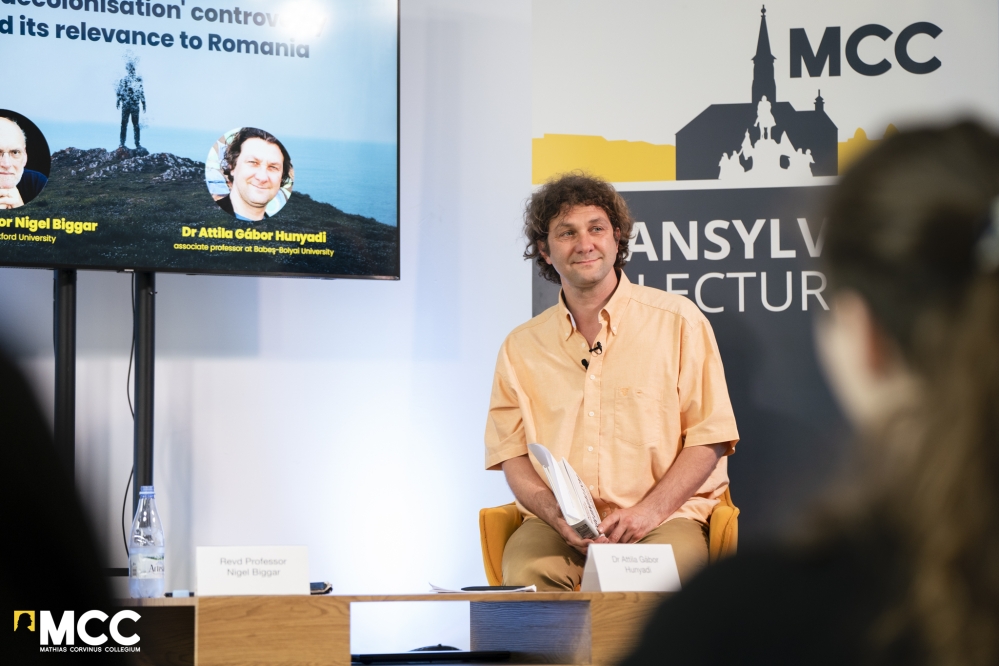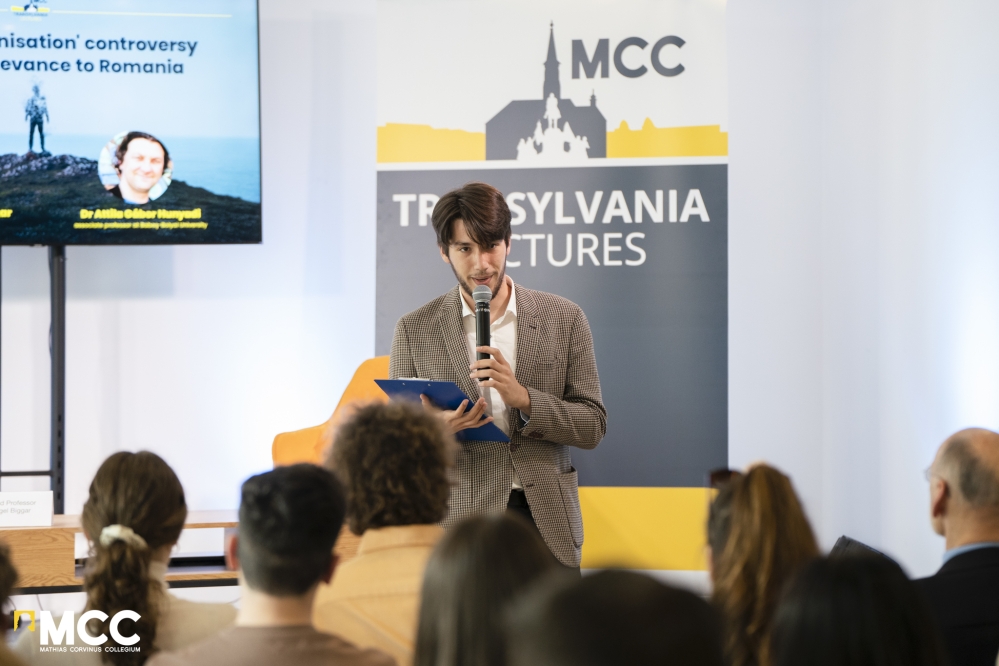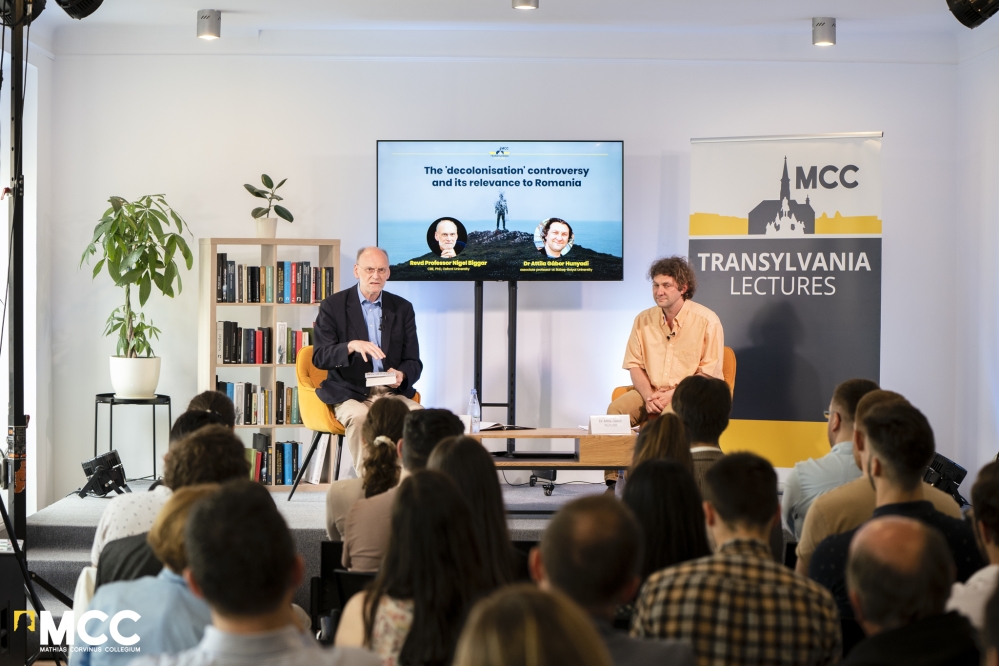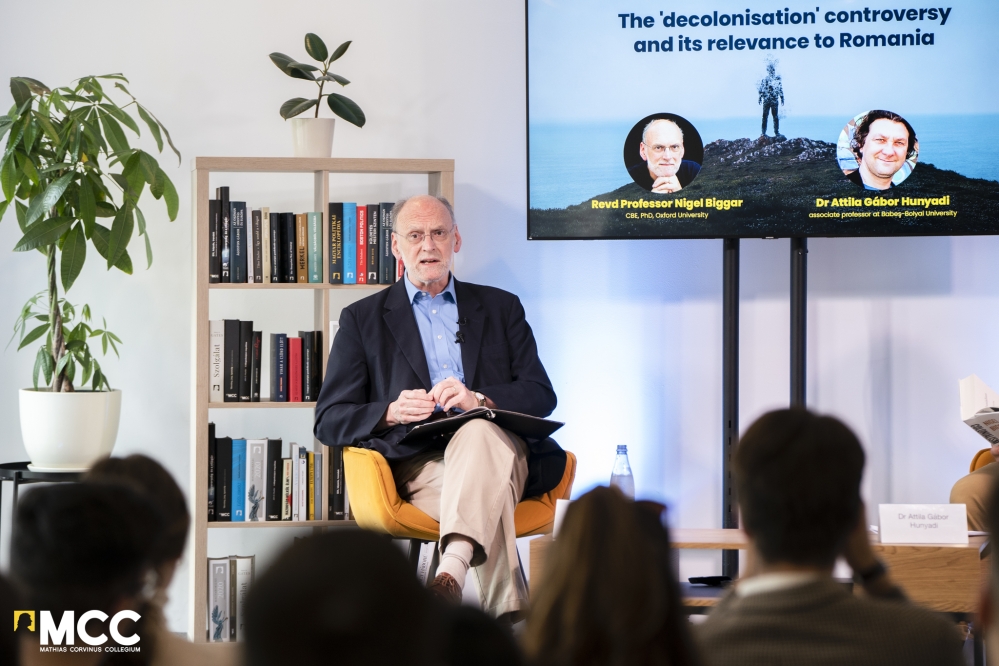Reading time: 3 minutes
The guest speaker at the Transylvania Lectures event in May was Dr Nigel Biggar, Professor of Moral Theology at the University of Oxford. In a talk at the MCC's Centre in Kolozsvár/Cluj-Napoca, he presented the controversies surrounding „decolonisation” that are still relevant in the anglosphere today.
At the event, Máté Sükösd, a student of the MCC's University Program, welcomed the participants and then gave the floor to the invited guests. Nigel Biggar is Regius Professor Emeritus of Moral Theology at the University of Oxford, where he directs the McDonald Centre for Theology, Ethics, and Public Life. He holds a B.A. in Modern History from the University of Oxford and a Ph.D. in Christian Theology & Ethics from the University of Chicago. Described as “one of the leading living Western ethicists”, Professor Biggar was appointed Commander of the British Empire “for services to higher education” in Her Majesty the Queen’s 2021 Birthday Honours list. He has lectured at several institutions and academies. His hobbies include walking over battlefields. In 1973 he drove a Morris Traveller from Scotland to Afghanistan; and in 2015 and 2017 he trekked across the mountains of central Crete in the footsteps of Patrick Leigh-Fermor and his comrades. The discussion’s moderator was Dr Attila Gábor Hunyadi, historian, associate professor at Babeş-Bolyai University.
Nigel Biggar said that the phenomenon known as decolonisation has become a popular topic in the last 3-4 years, and he finds it strange that the issue of colonialism is again being addressed in the public mind. The building and fall of empires has been going on for thousands of years around the world, which raises the question of why now, and why the British Empire is the subject of debate. The professor argues that today's liberal world order uses the colonialism and actions of the British in a modern context, for example blaming today's racism entirely on past colonialism. In an article, the professor explained the danger of the 'decolonising' view, which sees reason, the scientific method and liberal values of tolerance and freedom of expression as manifestations of the oppressive West and seeks to destroy them.
In his book Colonialism: A Moral Reckoning, the professor also highlights the injustices of the British Empire, with deep condemnations of slavery, oppression of indigenous peoples, the spread of racism, cultural oppression and unjustified military violence. It also seeks to highlight the benefits, such as the fight against slavery, the reconciliation of warring countries, humanitarian action, the promotion of human rights, the promotion of a free market worldwide and the provision of public services. Nigel Biggar, as an ethicist, believes that good and evil cannot be compared in terms of whether one supersedes the other. With this in mind, he argues that the empire as a whole cannot be considered evil.
In conclusion, Nigel Biggar pointed out that power in itself cannot be considered evil, since nothing can be achieved without it. Everybody tries to get it and there is competition, because nobody wants to be ruled by somebody else. But the moral question is for what ends and how is power used, without which progress is not possible.




